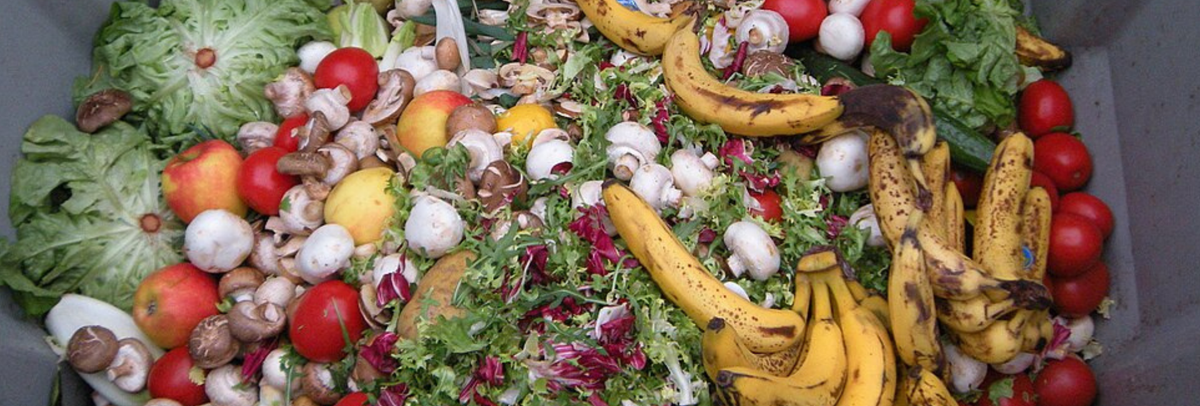Sophia Poole
Sophia is studying a Bachelor of Design/Media at UNSW, majoring in communications and journalism. A lover of all things creative, you’ll find her painting, sewing or writing if not already lost in a good book or film.

Sophia is studying a Bachelor of Design/Media at UNSW, majoring in communications and journalism. A lover of all things creative, you’ll find her painting, sewing or writing if not already lost in a good book or film.

As a waitress, I want to see cafes reduce food waste, prioritise the planet and feed less fortunate people
As I was walking through the park on my way to work at a Sydney café early one Saturday morning, I passed a man cooking at a picnic shelter barbeque. Saving the spot before the weekend crowds arrived, I assumed.
But the next morning, he was there again, now with a t-shirt and shorts drying on the seat. This time I wondered: Where had he slept overnight? Did he know where his next meal was coming from? Was there anyone else he needed to feed?
That afternoon, I forced bags of rubbish into the cafe’s overflowing skip bins, full of half-eaten meals, food past its use-by date and orders mistakenly made. I remember thinking that I wished the man could have eaten this food before it ended up here. And I wished I could tell him he’d never have to worry about hunger again.
Waste comes from privilege. Australia is fortunate to have resilient food security systems, but when food scarcity isn’t an everyday consideration, it’s easy to become complacent. So what if you leave your half-eaten burger for the waitress to clear instead of taking it away to eat later? Why not order that extra dish you know you won’t finish because your eyes are bigger than your stomach? The sheer scale of food waste could not be any starker than what I witness at work — I see it all in the bin.
Australia wastes 7.6 million tonnes of food each year. That’s enough to fill the Melbourne Cricket Ground ten times over. Of that, 70 per cent is edible. According to End Food Waste Australia, the hospitality sector is responsible for 16 per cent of this waste, sitting up there with households and primary production as the three largest contributors.
Our attitude towards food needs to change, and cafes, restaurants and other food service businesses have a major role to play.
Since the 1960s when consumption power shifted to wealthier middle classes, expectations of what is deemed quality food rose significantly. The standardisation of cafe meals exacerbates this. Cafes and restaurants must always have adequate stock to replicate menu items at the highest quality.
However, maintaining stock levels while adhering to food safety regulations leads to excessive waste. For example, if certain foods are left in the "temperature danger zone" of 5 to 60 degrees Celsius for over four hours, it must be thrown out due to bacterial growth. This means defrosted food cannot be refrozen.
It’s simple to say "Just prepare less food", but when customer numbers fluctuate, quantities are difficult to predict. Businesses often view the food that’s sold as making up for the cost of tossed ingredients. They also prioritise customer loyalty by ensuring ingredients are always available to serve what customers order from the menu.
So yes, sustainability and economic viability is a balancing act, but we must start prioritising social and environmental causes over economic interests if humanity is to have a future at all.
And there are ways to do this.
Firstly, cafes and restaurants must separate organic waste from general waste. One often assumes it will decompose, but letting it rot in landfill under mountains of rubbish without oxygen releases methane, a powerful greenhouse gas.
For example, a head of lettuce takes roughly two to three weeks to decompose in regular compost conditions, but over 25 years in landfill. It’s terrifying to think that all those side salads left on plates may still be rotting in landfill up to a quarter of a century later. That's a lot of methane. No wonder Earth’s atmosphere is warming.
Instead, food service businesses can partner with organic waste management services that turn food scraps into composts and soils for land rehabilitation. From mid 2026, this will be compulsory for all NSW businesses under the state government’s Food Organics and Garden Organics (FOGO) scheme. Cafes and restaurants should begin learning about how this will apply to their business. They can also consult End Food Waste Australia, an organisation supported by the Australian government, to find action plans to mitigate food waste developed specifically for the food service sector.
Cafes and restaurants should confidently alter their menus to offer dishes using leftover ingredients. Chef and author Tamar Adler wrote in the Washington Post that we must reframe our thinking from "food waste" to "food use", for example, reworking old rice into a delicious new meal like fried rice. Alternatively, cafes and restaurants can offload unsold products to customers through apps like Too Good To Go for discounted prices.
Food service businesses can also transform food waste into social good. Food rescue organisations like OzHarvest and Second Bite collect surplus food and redistribute it to charities, ensuring those like that man in the park never go hungry.
Cafes and restaurants are at the intersection of production, consumption and waste, and they are in the prime position to lead circular food waste discussions. Sustainability should not be a means of specialisation: it should be an everyday practice for all food service businesses. Food must feed people, not landfill.
Related stories
How young people are taking action to tackle the climate crisis
What is net zero and why has the Coalition ditched it?
The devastating impact of the mid North Coast floods